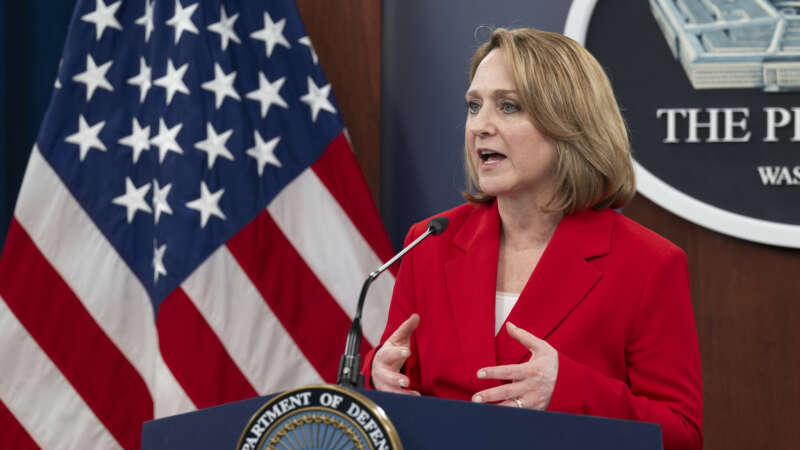
The Department of Defense (DoD) is grappling with escalating challenges that require innovative solutions, yet ongoing reliance on continuing resolutions (CR) for short-term funding and Congress’ failure to deliver timely budgets are hindering progress, according to Deputy Secretary of Defense Kathleen Hicks.
“We are currently under the 12th continuing resolution just of my tenure alone … [these] continuing resolutions, the inability to get a budget on time affects our ability to have new starts. You can’t innovate and do things differently if you can’t start in the first place,” Hicks said during a Smart Woman, Smart Power program hosted by the Center for Strategic and International Studies on Oct. 15.
CRs are temporary funding measures used by the U.S. government to keep Federal agencies operational when Congress has not passed a full appropriations bill by the start of the fiscal year (FY).
While CRs provide immediate funding solutions, they can introduce uncertainty in budget planning and impede long-term strategic initiatives.
In FY 2024, Congress passed four separate CR bills to keep the government operational until regular appropriations were approved six months before the fiscal year ended. To begin FY 2025, Congress again passed legislation extending funding for the Federal government at FY 2024 levels.
“The constant CRs have meant that [DoD] has lost more than five years in the past decade. The department cannot make new starts under a continuing resolution, and this is a burden to innovation,” Hicks said. “You can’t make that time up.”
Despite the budgetary uncertainty impacting innovation at DoD, there is a glimmer of optimism, according to Hicks, who cited the Pentagon’s joint all-domain command and control (JADC2) effort as an example.
“Whether it’s the commander in chief trying to understand where all the trade-offs are globally … all the way down to the tactical level where a commander on a battlefield … [is] looking across all those domains to synchronize their capabilities,” she said. “That’s what we’re trying to do in [JADC2]. From 2021 to today, [there has been] unbelievable progress.”
Lawmakers now have until Dec. 20 to consider and approve the 12 annual appropriations bills needed to fund the Federal government, but the election season means Congress will not reconvene until Nov. 12.
